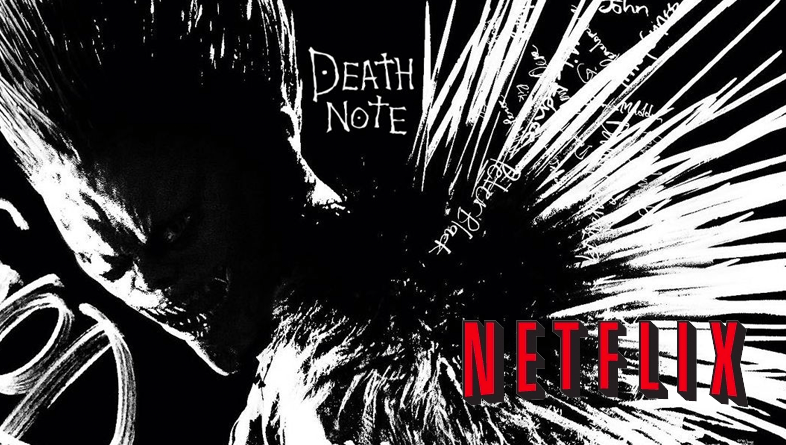
Shedding Light on Death Note: Why Live-Action Adaptations Take L’s
Written by Shayne
Edited by Marcos
Before I begin, I want to remind everyone that it’s totally okay to think what you want about this film.
You can think it’s Whitewashed because the main characters aren’t Asian.
You can think it’s stupid because it takes place in Seattle.
You can think it’s just another misstep in a long line of terrible Anime adaptations.

Most people came into this movie with way more expectations and assumptions than they do with other movies. But that makes total sense.
For a lot of us, Death Note was a rather impactful experience on our developmental years. It means a lot of things to a lot of people, so it makes sense that they’d be very critical of an American adaptation. .
That’s fine. Think what you want.
Here’s what I think:
Netflix’s Death Note is a pretty bad movie.
Is it as bad as, say, Dragonball Evolution?
Absolutely not. Few things are…besides my ex. ZING!
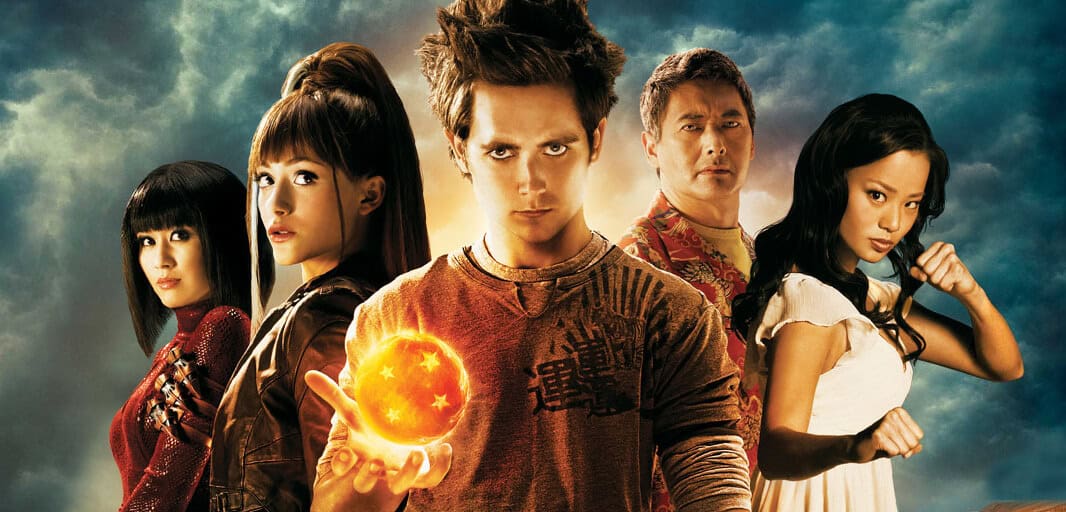
However, to truly understand why Death Note is bad and why it isn’t abysmal, it’s best to break this film down on several layers.
Here’s how it’s going to go down:
Concept
- Should Anime Ever Be Adapted Into Live-Action?
- Casting
Execution (Film Review)
- Light
- Misa
- Ryuk
- L
- The Dialogue
- Plot/Pacing
Conclusion
And, since this is a Death Note piece, let’s kick things off appropriately:
Concept

The conceptual level of this Death Note adaptation (or anything, for that matter) is what most people would describe as “the idea of it”.
Netflix releasing a live-action Death Note movie that is set in Seattle and features a White male depicting Light pitted against a Black man portraying L is the film’s concept.
And this is what most people were attacking about Netflix’s Death Note before any footage was released.

They didn’t like that Light Yagami had his name changed to Light Turner.
They didn’t like that L was a Black guy. (If you’re one of these people, then fuck you.)
They didn’t like that the film took place in Seattle instead of Tokyo’s Kanto region.

The reasons why these objections were so passionate stem from things far too idiosyncratic for me to address without making a lot of people butthurt.
But since this is my fucking website, I’m going to do so anyway.
However, let’s back up for a second and address the larger conceptual picture:
Should Anime Ever Be Adapted Into Live-Action?
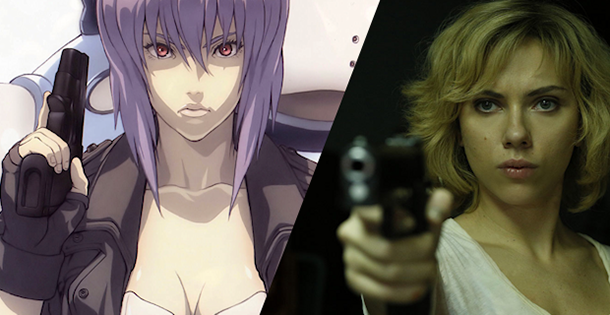
The short answer is “no”.
The long answer is “noooooooo”.

But seriously, nearly every Anime adaptation ever has been a complete trainwreck. There are several reasons why:
1. Live-Action has several creative restrictions that Animation does not.
One of the main reasons why people love Anime so much is because of its infinite potential for imagination and fantasy.
The medium itself allows for ridiculous settings, characters, and events to create imaginary worlds that extend far beyond the reaches of anything grounded in reality.
While modern advances in CGI and such have definitely added to the possibilities of Live-Action, it’ll never be able to reach anywhere near the same level that pure animation does without looking really silly.
One example: Speed Racer, bleh.

While this doesn’t directly apply to Death Note’s entire cast or setting, it’s almost undeniable that the character Ryuk stood out like a sore thumb in the live-action movie, as he was rendered mostly in CGI.
2. One of the major dimensions of Anime enjoyment is the animation itself

Yeah, so, a lot of movie studios seem to forget that the artistic direction and styles of acclaimed series are quintessential components to their quality.
In other words, a big fucking reason why people love Gurren Lagann so much is because of how excellently colored all of the designs were. Everything was so vibrant, from the mechs all the way down to the subtle shines that reflect off visors and such.

While it’s possible to dress someone up like Kamina and give him the proper hair and all, I can’t imagine a live-action Kamina ever looking as cool as the animated one.
In short: live-action is muted, and Anime is pretty.
3. Live-action pacing has to be very rushed in order to do any Anime story justice
This reason extends well beyond just Anime.
But in general, Anime story arcs are long.
How long, you ask? Well, that depends.

Take for example a popular Shonen manga like Dragon Ball , which is the granddaddy of all Shonen.
The King Piccolo saga of Dragon Ball ran from chapters 135-161 in the manga, and ended up being 26 episodes in the anime. That’s 8 and half hours of content that the creators of Dragonball Evolution tried to cram into 89 minutes of run time.
And we all know how that worked out.

The point is, that Anime arcs in long-running series have stories that drag on forever. Not because the original Mangaka wanted them to, but because of editorial pressures to make series run longer than they were ever intended to.
The problem is made even worse with shows that are under 50 episodes, such as Death Note.
Although the Netflix adaptation only really goes up to Episode 16 or so, we have to remember that Death Note was a one-off show, so every episode moved the plot forward in a meaningful way.
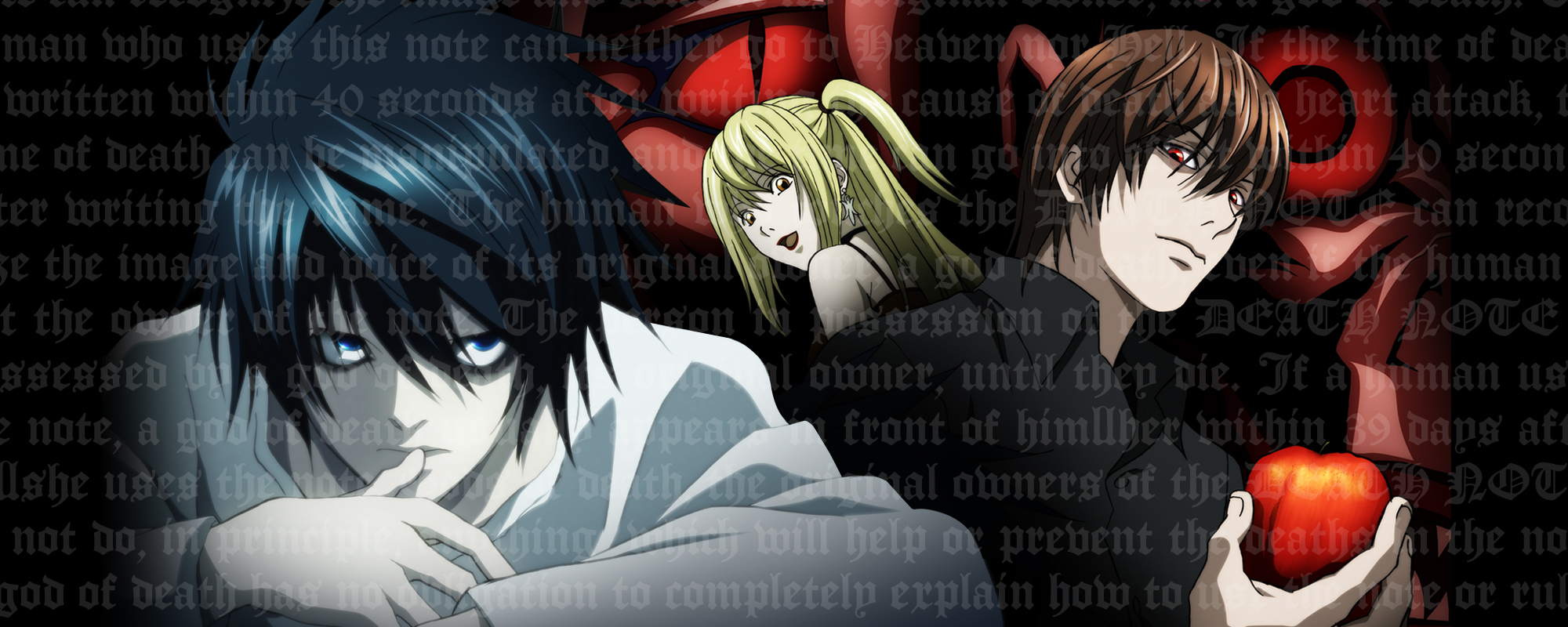
That means that any adaptation of this show is going to have to explain things really quickly in order to hit all the necessary story beats.
Netflix’s Death Note attempted to do just that, leading to a very surface-level story that seemed awkwardly rushed at times.
In general, Anime is a very difficult medium to convert into live-action, and anyone who criticized this conceptual dimension of Death Note before it was even released was right to be skeptical.
Okay, with that out of the way, let’s move onto the next conceptual topic that everyone was pissed about:
The Casting

I’m going to try and keep this short. Partially because you’ve probably heard all about this by now, and partially because full understanding of this requires a perspective that I flat-out don’t have.
I’ve gone back and forth with a lot of people on this: from real friends, to fake internet friends, and even a 40-year old Korean woman at work.
At the foundation of this discussion lies the uncomfortable truth that Asian people are rarely cast in leading roles.
Notice I used “leading roles”, so even though Watari was an Asian man, he was still supporting character who was literally L’s assistant.

So, like, no.
And while the story of Death Note is a tale about corruption caused by God-like power that isn’t fundamentally tied to any culture, a live-action movie was the perfect chance for a studio to try and rectify the trend mentioned above.
They did not.
Light is one of the best characters in fiction that I’ve ever encountered (although I still like L more). He’s an incredibly complex and tragic figure who had audiences rooting for him despite his murderous intent.

A common counter-objection to his casting is “why should he be Asian?”’; a better question is probably “why not?”
The conversation gets a lot more complex, however, when you consider the fact that L is played by Lekeith Stanfield, a Black man.

Is the film still Whitewashed if the other lead character is Black?
Would the film have been any less “racist” if L was an Asian?
L is 75% European in the manga, so would it be a problem if he was played by a White person?
Is it really a matter of Light being White? Or is it the fact that he’s not Asian?
Pretty heavy questions, that honestly are dependent on who’s asking them.
Anyway, the casting pissed off a lot of people before they ever saw (or didn’t see) the film itself.
Which is totally fine. I almost didn’t see the film at all because I didn’t care much for its concept and hate the idea of live-action Anime movies.
Anyone else who felt the same should be allowed to do so.

However, it should be stated that anyone who hated the film conceptually but didn’t watch it should only have a solid opinion on the conceptual level.
By that, I mean that you can’t say it’s a terrible movie if you’ve never seen it.
I mean, you can, but you’ll look like an idiot.
You can say it’s a terrible concept, sure, but saying that the movie itself is bad is just a brazen example of ignorance.
Speaking of the movie quality…
Execution (Film Review)

So, after all this, how does the Death Note hold up?
It sucks.
Haha.
But it’s not as bad as many thought it would be. Or, at least, not as bad as some had hoped.
Before I go any further, I want to dispel the delusion some have that this movie shouldn’t be compared to the Anime.
Fuck you.
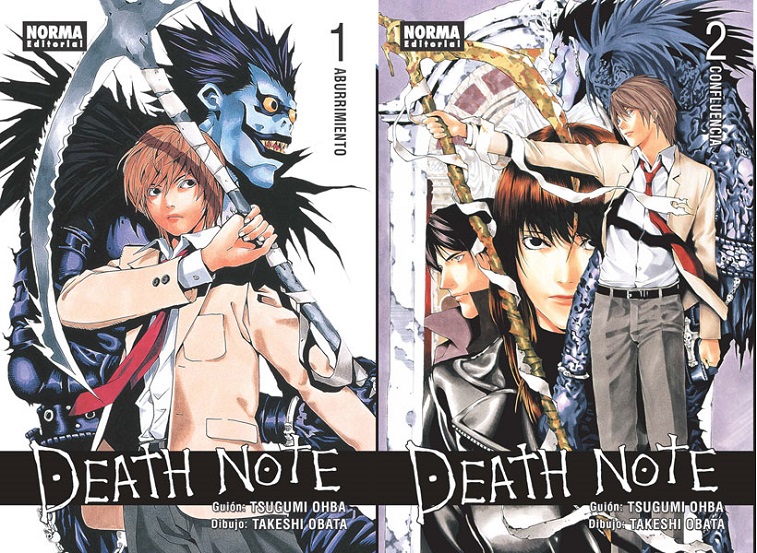
The fact of the matter is that both the live-action movie and anime are adaptations of the original light novel series.
The Death Note anime, while not perfect, is still considered a classic. I’d probably place it among the second highest tier of all anime I’ve seen.
So, since the anime is great adaptation, it’s only fair to compare any subsequent ones accordingly, such as this movie.
The drawback to this that many will point out is that comparing the movie to the anime makes the movie much worse.

Much, much worse.
That said, it still isn’t the worst thing on Earth.
Let’s look at several elements to this movie and evaluate them, shall we?
Light

1 of the 2 things that this movie absolutely had to get right (the other was L, duh), and it catastrophically dropped the ball.
The reason why Light is so captivating in the manga/anime is because of how he’s built up as a truly tragic figure.
He’s a well behaved kid at the top of his class, a great son and brother, and an amazing tennis player.
He’s about as well-rounded as possible, which makes him a perfect vehicle for one of the main themes: “Absolute power corrupts absolutely”.
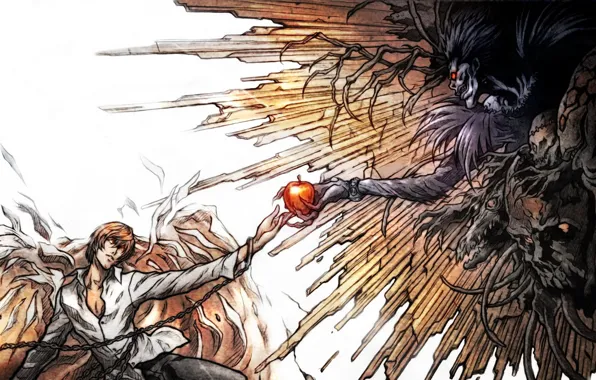
Light only wants to make the world free, and his acquisition of the Death Note enables him to do so.
Light uses the same traits that made him such a model citizen to his advantage, and manipulates and outwits anyone necessary to obtain his goals.
Pretty enticing character, right?
Yeah–the live-action Light is none of that.
Instead, Light Turner is horny loser. Our only evidence of his intelligence is that he does other students’ homework for money.

And we all know how hard American high school homework is…
His other actions certainly aren’t indicative of any supposed level of cunning. He carries around the Death Note in the gym, reads it in broad daylight, and tells Mia about it with almost no hesitation.
In other words–he’s a fucking tactless idiot who should have been caught in 10 minutes.
He also chooses a common school bully as his first victim.
So instead of having the morally ambiguous philosophy of Light Yagami, Light Turner is a straight-up murderer.

While Nat Wolff’s acting wasn’t spectacular by any means, I doubt too many actors would have fared any better with the clunky dialogue in this movie.
It’s not his fault, give the guy a break.
Anyway, Light is the worst part in a film that needed him to be the best part. There’s little reason to root for him in this. And the movie’s shitty attempt at having him eventually oppose Mia to win us over falls flat.
Speaking of Mia…
Mia

Some of my friends actually really liked Mia (Misa) in this film, but I absolutely hated her.
The reason why boils down to the function of Misa vs. Mia.
In the anime/manga, Misa served as an intimate example of a devoted Kira worshipper. Through her, the audience understands why Kira had just as many fanatic supporters as he had detractors.
While her personality is annoying, she’s a vital component to the overall story.

The plot needs a main character to remind us of Light’s appeal. What makes Light such a polarizing figure is how ambiguous his morality is.
We already know that L and the police force think Kira is evil, so we need a character around who inversely thinks of him as a God.
In essence, her zeal balances out L’s clear-cut belief that Kira is evil.
The film version of Misa, inexplicably named Mia (as if that changes anything), servers a role that almost directly contradicts that of the manga.

Mia is a murderous bitch who eventually surfaces as the film’s actual villain.
While there’s really nothing wrong with someone else also becoming corrupted by the Death Note, the aspect of tragedy is evaporated with Mia since she was an asshole from the beginning.
She’s basically a more extreme version of the shitty Light, and doesn’t really add any complexity to the story.
Ryuk
………
….
………
…..Wait–Ryuk was in this movie?
Apparently he was, even if he only had like 5 minutes of total screen time.
I don’t really have much of an opinion on Ryuk in this film, mostly because he was barely around.
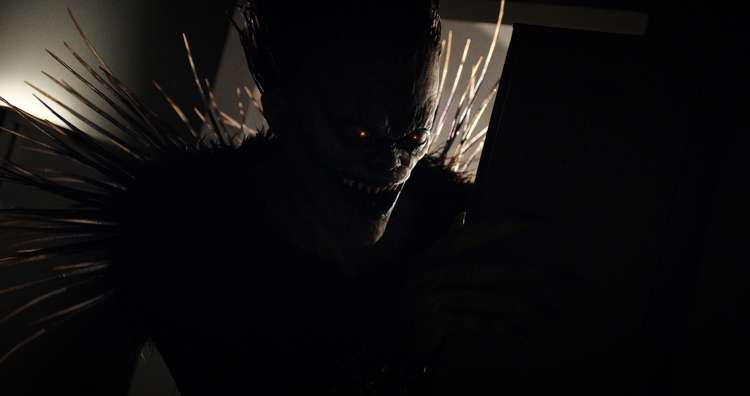
Following a hilariously awkward introductory scene, Ryuk’s urges Light to use the Death Note at every opportunity.
Like, every opportunity.
Manga/Anime Ryuk was a true Neutral Neutral character. He gave Light the book, explained things to him when necessary, and sat back to watch the sparks fly.

Portraying him as an evil entity in the film nullifies the belief that the Death Note is only as evil as whoever is wielding it.
It’s more of a nitpick, but there’s not much to talk about here.
I do wish that Willem Dafoe would have been given practical makeup instead of just lending his voice, but that’s just another preferential thing.
L
Stanfield’s portrayal of L is what saved this movie from being a complete disaster.
I had heard good things before watching the film, but I didn’t expect it to be this impressive.
The main source of my praise comes from the fact that L is not an easy character to play. He’s a weirdo with odd antics, both physically and mentally.

But Stanfield did it perfectly, translating L’s posture, speech pattern, and gestures to a T.
The best scenes in the film were those that featured L, and the movie did a good job of not completely fucking up his character.
Admittedly, Stanfield would overact every now and then during certain scenes, but given the surrounding cast, it’s easily forgivable.
The Dialogue
Like I mentioned before, live-action adaptations have to condense a lot of information into a short amount of time.
The dialogue clearly suffers as a result, since characters info-dump in ways that no real human would ever actually speak.

My (least) favorite example of this is when Light is talking to the school principal. During the conversation, the principal flat-out tells Light that his mother’s death isn’t an excuse for his behavior.
Like….whet? Is that appropriate for a school administrator to say to a student?
“Haha your mom’s dead but you still get detention”
And is that really the best way for us to find out that Light’s mom was murdered?
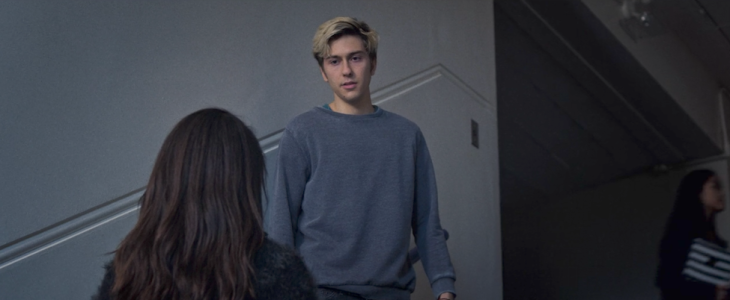
How about him looking at an old photo of her with a somber face? Or him angrily reading over a newspaper story of her death shortly before he gets the Death Note?
Why do we need to be told everything so bluntly?
I’m guessing because of time constraint, so the characters need to explain as much background per sentence as possible.
Plot/Pacing
Similar to the dialogue, the pacing of this film had to be super-fast in order to get everything in.
What we’re left with is several plot points that were either underdeveloped or glossed over completely in favor of time.
I can imagine this film feeling convoluted and rushed for someone who has never read the manga or seen the anime.

Especially the rules of the actual Death Note, which I’m not even sure if I remember correctly.
They’re different from the manga, which is fine, but they’re stated so briefly that it’s hard to keep track of when rules are being broken.
*SPOILER* How was Light able to kill Watari if “Watari” isn’t his real name? And don’t you need a last name, too? *END SPOILER*

Because of the rushed pacing, the plot seems to be on a much smaller scale than the manga/anime. It doesn’t seem like Kira has an influence on the world as much as he does on just Seattle.
And I don’t think anyone cares about Seattle that much, so..
In general, the plot did what it had to given the time it had to work with.
And while I don’t think it did the best job it could have, I can’t imagine the ceiling being that high either.
Conclusion

So, did Death Note fail on a conceptual level? Or was it the execution that doomed it?
I would say both, but that one directly led to the other.
Namely, this movie’s concept put it in a hole from the start. Adapting a beloved property with this much content into a live-action, 90-minute format is about as likely as Donald Trump becoming Pre-….

….oh, right.
The point is that it’s not easy, and the creators of this film were basically fighting Goliath with one hand tied behind their backs.
The accusations (and, frankly, mild evidence) of Whitewashing certainly didn’t make things any better.
At the end of the day, the fact remains that this movie probably shouldn’t have ever been made.
But it was, and we got a subpar film that, while having some good moments, ultimately was unable to topple the insurmountable odds of success it faced to begin with.
It’s definitely watchable, for sure. I watched it with someone who had never seen the anime, and they were surprisingly pretty engaged.

I just don’t think that anyone who watches this will ever feel the need to watch it again.
The upside is that there are actually THREE Japanese Death Note films that are much better than this recent one.
…I mean, they’re still not great, but they’re okay.

The downside is that 2017’s Death Note exists.
Hopefully with time, it’ll be tucked safely behind the shadow of the anime, which was already quite large.
So large, in fact, that it could likely only ever be properly depicted in animated form.
Funny how that works, ey?
Thanks for reading!
Oh—and just for the sake of closure, here’s a final score:
5/10
Peace!